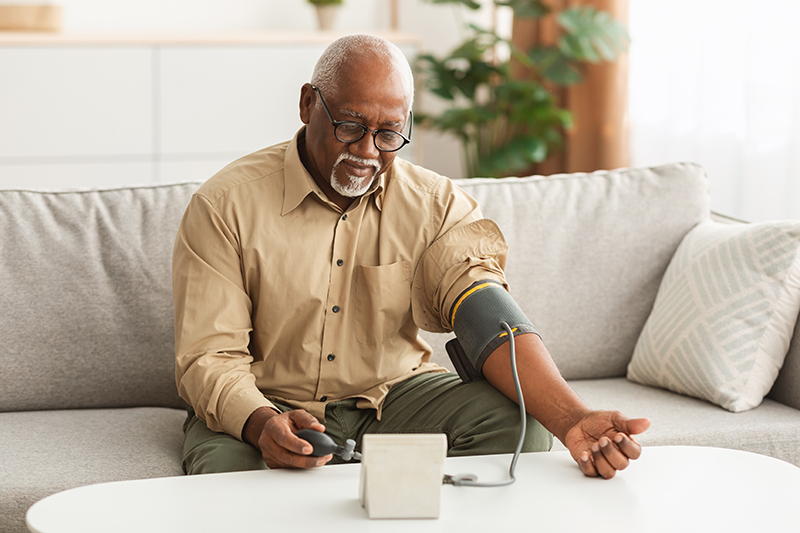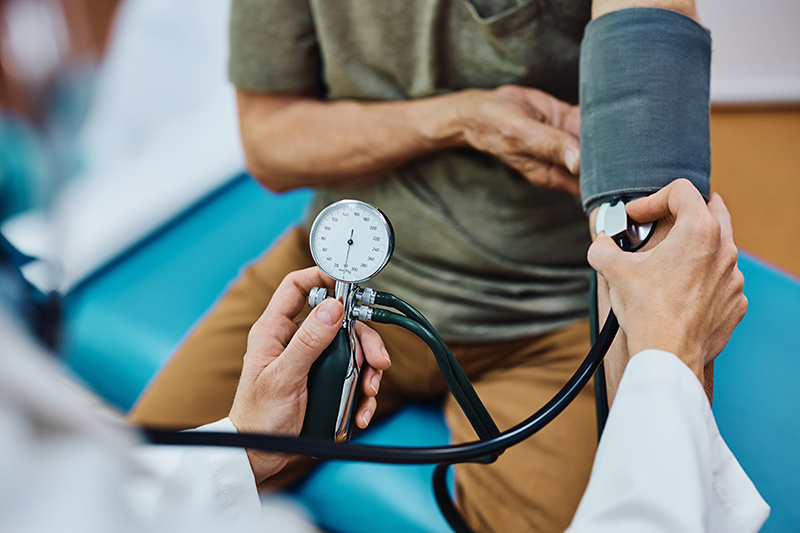Bio-degradable cards
Every card imaginable!
|
Bio-degradable cards Every card imaginable! Blood Pressure Levels and the Benefits of a Medical ID Card
Understanding Blood Pressure: Basics and Norms
What is the difference between high blood pressure and low blood pressure?High blood pressure, or hypertension, happens when the force of blood against your artery walls is consistently too high. Over time, this extra strain can damage blood vessels and increase the risk of serious health problems like heart attack, stroke, kidney disease, and even cognitive decline. Low blood pressure, or hypotension, occurs when blood pressure is too low to adequately supply your organs with oxygen and nutrients. This can cause dizziness, fainting, or even shock in severe cases. Both high and low blood pressure can affect overall health, but they do so in different ways—one by putting too much strain on the heart and arteries, the other by not providing enough blood flow to vital organs.
What is normal blood pressure?Normal blood pressure is generally considered around 120/80 mmHg, but it’s not the same for everyone. Many doctors consider readings under 130/85 mmHg acceptable for healthy adults, though what’s normal can vary depending on age, overall health, and other medical conditions. Blood pressure naturally fluctuates throughout the day due to activity, stress, or diet, so occasional readings slightly above or below this range aren’t necessarily alarming. Regular monitoring and check-ups are important to track trends and make sure your blood pressure stays in a healthy range for you personally.
How to lower blood pressure?There are several lifestyle changes that can help bring blood pressure down. Regular aerobic exercise, like walking, cycling, or swimming, for around 30 minutes most days, strengthens the heart and improves circulation. Dietary changes, such as following the DASH diet—which emphasises fruits, vegetables, whole grains, and low-fat dairy while limiting saturated fat, cholesterol, and processed foods—can make a noticeable difference. Reducing salt intake, even slightly, may lower blood pressure for some people. Cutting back on alcohol and quitting smoking also help by reducing strain on your heart and arteries. In some cases, medication may be needed, and these lifestyle steps often work best in combination with medical guidance.
What causes high blood pressure?High blood pressure can develop in a few different ways. Primary (or essential) hypertension has no single cause and tends to develop gradually over time, influenced by factors like genetics, lifestyle, and aging. Secondary hypertension is the result of another condition and can appear suddenly. Causes may include kidney disease, sleep apnea, certain hormone disorders, or congenital heart defects. Understanding the underlying cause is important because treating it can help control blood pressure more effectively.
Identifying and Managing High Blood Pressure
What causes low blood pressure?Low blood pressure can happen for several reasons. It may result from sudden blood loss, severe dehydration, infections, or serious allergic reactions known as anaphylaxis. Certain medications, including diuretics or some drugs used for heart conditions, can also lower blood pressure, and some slow the heart rate, which reduces pressure in the arteries. Hormonal changes, like those during pregnancy or caused by thyroid or adrenal issues, can further affect blood pressure. While low blood pressure isn’t always dangerous, it can cause dizziness, fainting, or shock if it drops suddenly or severely.
What is hypertension?Hypertension is diagnosed when blood pressure readings consistently exceed 140/90 mmHg. It’s often called the “silent killer” because most people do not notice any symptoms until significant damage has occurred in the heart, arteries, or other organs. Long-term uncontrolled hypertension increases the risk of heart attack, stroke, kidney problems, and other serious health issues. Managing hypertension usually involves lifestyle changes like exercise, diet, reducing alcohol and salt intake, and sometimes medication. Regular monitoring is important to keep it under control and reduce long-term risks.
Does alcohol raise blood pressure?Yes, alcohol can raise blood pressure, especially when consumed in excess. Heavy drinking can trigger repeated spikes, and over time, it may contribute to sustained high blood pressure by affecting the nervous system that regulates heart rate and blood vessel function. Even moderate drinking, if regular, can have an effect on blood pressure, particularly in people who are sensitive or already at risk. Reducing or limiting alcohol intake is often recommended as part of managing blood pressure.
Can stress cause high blood pressure?Stress can temporarily raise blood pressure, but chronic stress may have longer-term effects. Stress often encourages behaviours like unhealthy eating, drinking, or smoking, which in turn can lead to sustained high blood pressure. Chronic stress may also overstimulate the adrenal glands, increasing hormones that raise blood pressure. Managing stress through techniques such as exercise, mindfulness, or relaxation practices can help reduce its impact on blood pressure.
High Blood Pressure: Considerations and Effects
How to work out average blood pressure?To get an accurate picture of your blood pressure, it’s best to take readings at the same times each day, such as in the morning and evening, over several days or a week. Make sure you sit quietly for a few minutes before measuring, and use a properly calibrated, validated blood pressure monitor. Record each reading, then calculate the average separately for the systolic (top number) and diastolic (bottom number) values. This approach helps identify trends rather than relying on a single measurement, which can be affected by stress, activity, or even caffeine.
Is high blood pressure a disability in the UK?High blood pressure alone is not classified as a disability under UK law. However, complications from prolonged hypertension, like heart disease, stroke, or kidney damage, can significantly limit day-to-day activities and may be considered disabilities under the Equality Act 2010. Whether someone qualifies for support or adjustments depends on how the condition impacts their ability to perform normal tasks at work or home.
Does aspirin lower blood pressure?Aspirin is mainly used to prevent blood clots and reduce the risk of heart attack or stroke. Some research suggests that low-dose aspirin taken at night might slightly lower blood pressure in certain people, but it is not a standard treatment for hypertension. Taking aspirin without medical guidance can have risks, including stomach bleeding or interactions with other medications. It should only be used under the supervision of a healthcare professional.
Does hot weather affect blood pressure?Hot weather can influence blood pressure in several ways. Heat causes blood vessels to widen, which can lower blood pressure as the body works to cool itself. On the other hand, dehydration from sweating can make blood pressure rise because the body tries to maintain proper fluid balance. People taking blood pressure medications may be especially sensitive to these fluctuations, so staying hydrated, monitoring readings, and adjusting activity levels in hot conditions is important.
Blood Pressure in Special Circumstances
Can you drive with high blood pressure?In most cases, you can drive if you have high blood pressure, as long as your condition is controlled and you’re not at risk of sudden complications like heart attack or stroke. It’s important to follow your doctor’s advice, take prescribed medication consistently, and keep track of your blood pressure. If you experience dizziness, chest pain, or other concerning symptoms, you should avoid driving and seek medical guidance.
Is it okay to fly with high blood pressure?Flying is generally safe for people with well-managed high blood pressure. Stress, changes in cabin pressure, and long periods of sitting can temporarily raise blood pressure, so it’s wise to plan ahead. Discuss your travel plans with a healthcare provider, ensure you have enough medication for the trip, stay hydrated, and try to move around during the flight when possible to reduce risks.
Do athletes have low blood pressure?Athletes often have lower resting blood pressure compared with non-athletes. Regular aerobic and strength training improves the efficiency of the heart, allowing it to pump blood more effectively with less effort. This reduces the pressure on arteries and generally contributes to lower blood pressure readings. Even so, intense exercise can temporarily raise blood pressure, so monitoring and recovery are important.
Can statins lower blood pressure?Statins are mainly used to reduce cholesterol, but they may also slightly lower blood pressure in some people. This effect is thought to come from improved blood vessel function: statins can help arteries relax and stay more flexible, which reduces the force needed to pump blood through them. While the blood pressure reduction is usually modest, it can add to the overall cardiovascular benefits of taking statins under medical supervision.
The Importance of Carrying a Blood Pressure Medical CardCarrying a Blood Pressure Medical Card is a practical step for anyone managing high or low blood pressure. For people with hypertension, the card ensures that if a medical situation arises where you can’t communicate clearly, doctors and first responders immediately know about your condition. This information can be critical, as high blood pressure can influence how emergency treatments are given and help prevent complications. For those with low blood pressure, the card is equally important. It can alert medical personnel to potential hypotensive episodes, which might be causing dizziness, fainting, or other symptoms, allowing for faster and more accurate care. These cards aren’t just useful in emergencies. They also help in everyday situations, such as seeing new healthcare providers or travelling, by keeping essential information easily accessible. Showing your card can save time, reduce stress, and ensure the right care is provided quickly. Our Blood Pressure Medical Cards are designed to be durable, convenient, and eco-friendly. Made from biodegradable plastic and the size of a credit card, they fit easily into a wallet, purse, or pocket, so you can carry them wherever you go without hassle. In short, a Blood Pressure Medical Card is a simple, effective tool that can make a meaningful difference in managing your health. It provides essential information that speaks for you when you might not be able to, giving both peace of mind and practical support in everyday life and emergencies.
© 2024 The Card Project Uk Ltd
VAT: 453 2087 06
|